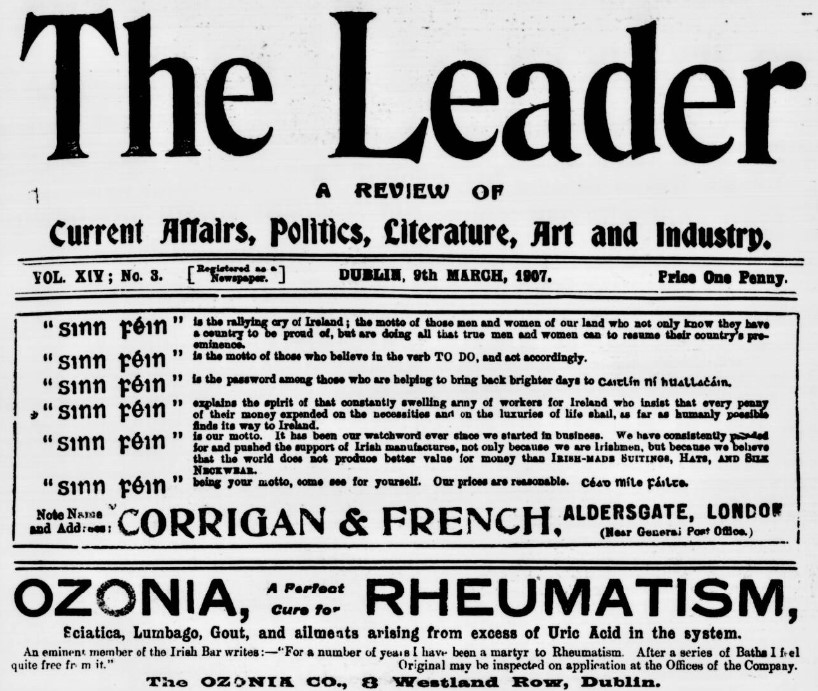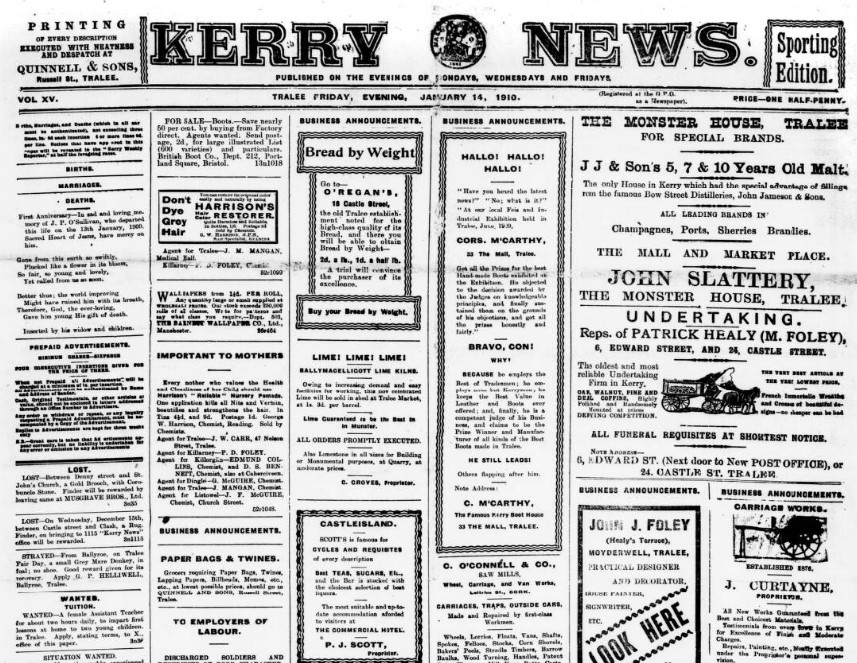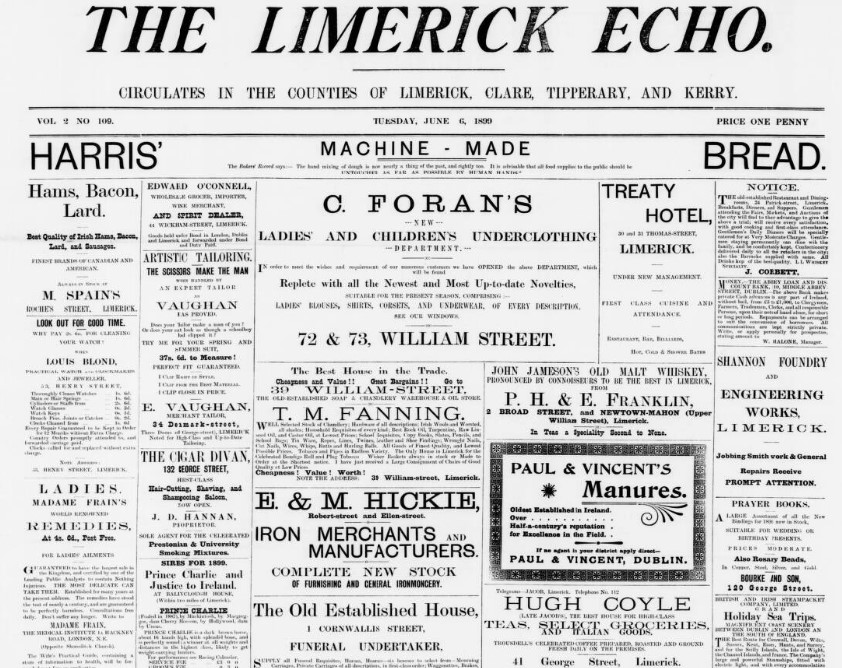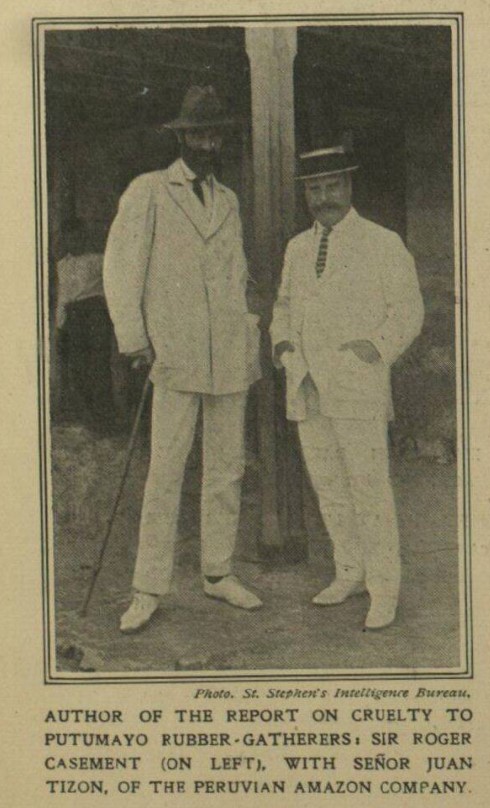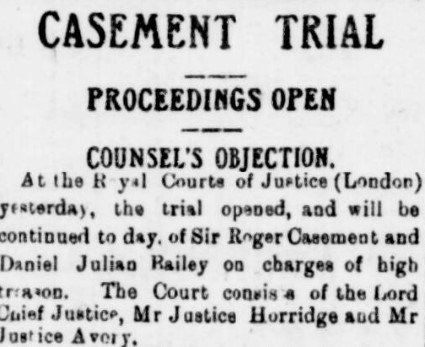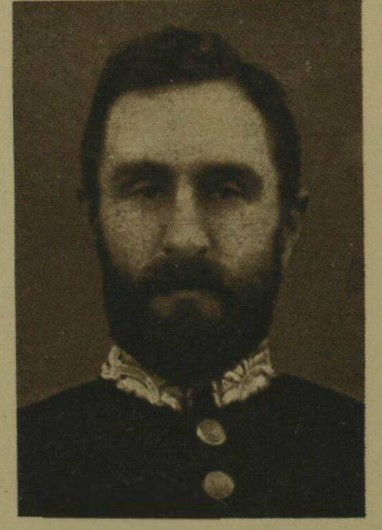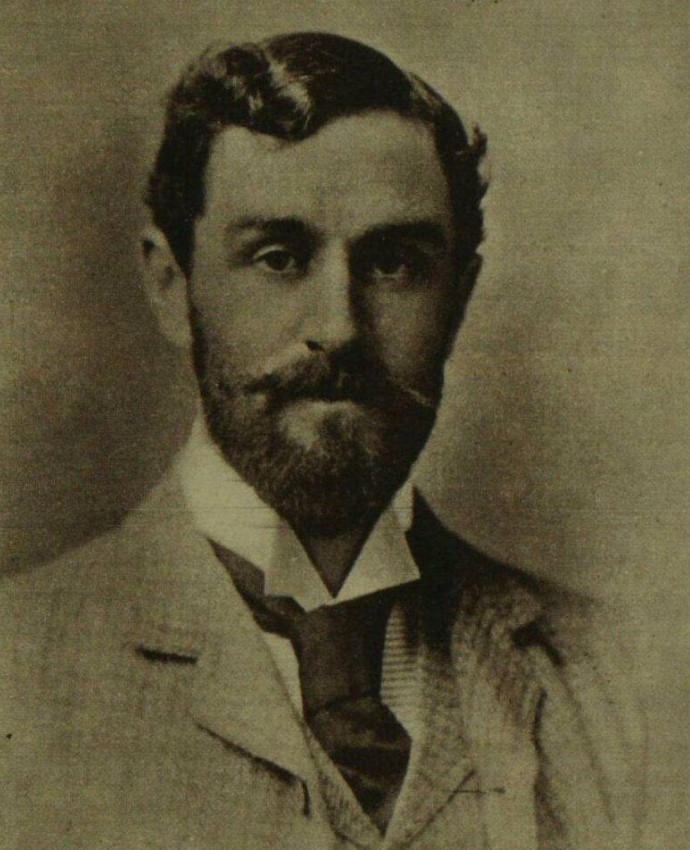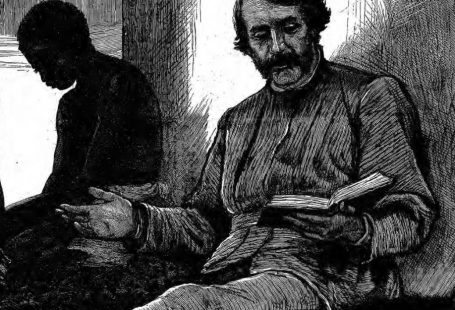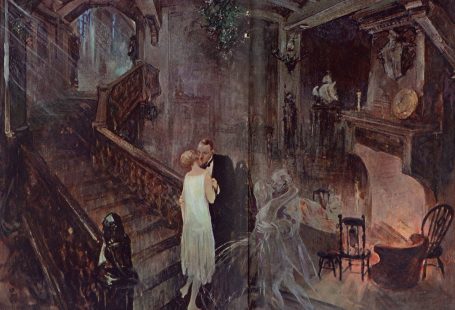This week at The Archive we are illuminating Irish history with the addition of three brand new Irish newspapers, from Dublin, Limerick and Kerry. Meanwhile, over the past seven days, we have added a total of 122,848 brand new pages, whilst we have also updated five of our existing titles from the Republic of Ireland and Northern Ireland.
So read on to discover more about all of our new and updated titles of the week, as well as to learn about the start of the trial of Sir Roger Casement in June 1916. Diplomat and Irish nationalist Casement was accused of high treason for his leading role in the Easter Rising, which aimed to secure independence for Ireland.
Register now and explore the Archive
The first of our trio of new Irish titles this week is the Dublin Leader, which was ‘A Review of Current Affairs, Politics, Literature, Art and Industry.’ Founded in 1900 by David Patrick Moran (1869-1936), who was also known as D.P. Moran, the Dublin Leader was a Nationalist title that appeared every Saturday at the cost of one penny.
Its founder, D.P. Moran, was an Irish journalist, activitist and cultural-political theorist, who was a key advocate of Gaelic Catholic Irish nationalism during the early twentieth century. In his 1905 work The Philosophy of Irish-Ireland, he argued that in order to be truly Irish, one had to use the Irish language, be Roman Catholic, have an anti-materialistic view on life and to only play Gaelic games. Indeed, Moran used the Dublin Leader as a mouthpiece for his views, and the paper published articles in both English and Irish.
So what sort of material did the Dublin Leader contain? Filling its sixteen pages, which were laid out across two columns, were pieces on ‘Current Affairs,’ which included articles like ‘Master Tailors of Dublin’ and ‘G.N. Railway Favours Saxon Travellers.’ The publication also printed correspondence, and general interest articles, which addressed such subjects as Irish sport, Irish industry, and Irish literature.
By 1928 the Dublin Leader had doubled in price, rising from the cost of one to two pence.
Our next new Irish newspaper of the week is the Kerry News, a bi-weekly newspaper that was first published on 23 January 1894 in Tralee, the county town of County Kerry. Indeed, the new title was a revolutionary one in the county, as it was Kerry’s first ever halfpenny newspaper, as its first edition outlined:
To-day, for the first time in the history of journalism in Kerry, is published a Half-penny newspaper. The Kerry News is the first newspaper printed in Kerry offered to the public at that price. Feeling that a want existed in this county for a journal of the kind, and hopeful of being able to meet it in a manner satisfactory to themselves and the public, the proprietors were induced to embark upon the enterprize.
The new newspaper intended to be a ‘thoroughly independent sheet,’ as well as being ‘up-to-date in every respect.’ Its introductory editorial continued:
In the first place we shall endeavour to give at all times our readers the fullest and most impartial reports of all matters of interest occurring in Kerry…We have also arranged for a supply of general news by telegraph on the evenings of publication, so that our columns at all times may be relied on to contain the latest news possibly obtainable, whether local or otherwise.
Appearing every Tuesday and Friday, and filling four pages, the Kerry News featured the latest news from the area, with updates from the Killarney Town Commissioners, the Tralee Urban Sanitary Authority, the Killarney District Lunatic Asylum, the Tralee Quarter Sessions, the Dingle Board of Guards, the Listowel Land Sessions, the Tralee Petty Sessions and the Listowel Town Commissioners. Meanwhile, the newspaper also published poetry, national and international news, and articles devoted to sport.
Our final new Irish newspaper this week is the Limerick Echo, which was founded in 1889. This independent Nationalist newspaper circulated in the ‘counties of Limerick, Clare, Tipperary, and Kerry,’ was published every Tuesday from Sarsfield Street, Limerick.
Filling four pages, the Limerick Echo cost one penny. It printed local news, with reports from the Limerick Quarter Sessions, the Limerick Harbour Board, the Limerick County Council and the General Quarter Sessions of the Peace. Looking further afield, the newspaper covered national and international news, as well as carrying ‘Sporting Intelligence,’ which addressed racing, athletics and cycling.
That may be it from our three new Irish newspapers of the week, but there is still plenty for you to discover in the five titles to which we have added new pages. The titles are the Belfast Commercial Chronicle, the Dublin Shipping and Mercantile Gazette, the Limerick Chronicle, the Roscommon Herald and the Wicklow News-Letter and County Advertiser.
The Trial of Sir Roger Casement – June 1916
On 26 June 1916 Sir Roger Casement, the diplomat and Irish nationalist, went on trial at the Royal Courts of Justice, accused of high treason. Casement, who had been knighted in 1911 for his investigation into human rights abuses in the Peruvian rubber trade, had sought German military aid for the Easter Rising, which had taken place a few months before his trial. It was for this, part of his efforts to gain independence for Ireland, that he was on trial.
On 27 June 1916, the day after the trial’s opening, our new newspaper the Limerick Echo reported on the proceedings:
At the Royal Courts of Justice (London) yesterday, the trial opened, and will be continued to day, of Sir Roger Casement and Daniel Julian Bailey on charges of high treason. The Court consists of the Lord Chief Justice, Mr Justice Horridge and Mr Justice Avery.
Casement’s defence barrister, A.M. Sullivan, quickly pushed for the indictment to be quashed, citing ‘that there was no evidence to support it, there being, he contended, no overt act done within the King’s Dominions.’ This suggestion was dismissed, however, and Casement offered his plea of ‘not guilty.’
The jury having been selected, the case against the ‘able and cultivated’ Casement was put before the court, the Limerick Echo describing how:
Counsel proceeded to trace the attempts as alleged of the accused to seduce Irish prisoners of war in Germany. These prisoners were simple unlettered men, emotional, excitable, and it was believed they would be easy victims to seduction. These men were addressed by Sir Roger, who stated he was forming an Irish Brigade, and invited them to join it. He pointed out that everything was to be gained for Ireland by Germany winning the war, and that the Irish soldiers had the best opportunity they ever had of striking a blow for Ireland against the enemy of the country.
Casement allegedly, furthermore, told these men that should Germany win a sea battle, he himself would land a brigade of Irish troops ‘in Ireland to fight against the enemy England.’ Should Germany lose, he promised the men a pension of £20 to £30 and a free passage to America.
John Cronin, of Cork, formerly of the 2nd Munster Fusiliers, testified to Casement’s visit to the prisoners in Limburg. Overall, 52 men agreed to join the Irish Brigade. Daniel O’Brien, formerly of the Leinster Regiment, and John Neill, formerly of the 8th Royal Irish, gave similar evidence.
Despite A.M. Sullivan’s protestations about the 1351 Treason Act on which Casement was tried, which implied that such activities had to be undertaken on British soil rather than elsewhere, in this case, Germany, Casement was found guilty. A comma was read into the original Norman-French text, altering the meaning of the phrase ‘in the realm or elsewhere.’
Found guilty, Roger Casement was sentenced to death. He later wrote how he was to be ‘hanged on a comma.’ His knighthood forfeited on 29 June 1916, Casement was hanged at Pentonville Prison on 3 August 1916. Nearly fifty years later, after repeated attempts, his body was repatriated to Ireland, and Casement was given a state funeral, with the last surviving leader of the Easter Rising, Éamon de Valera, in attendance.
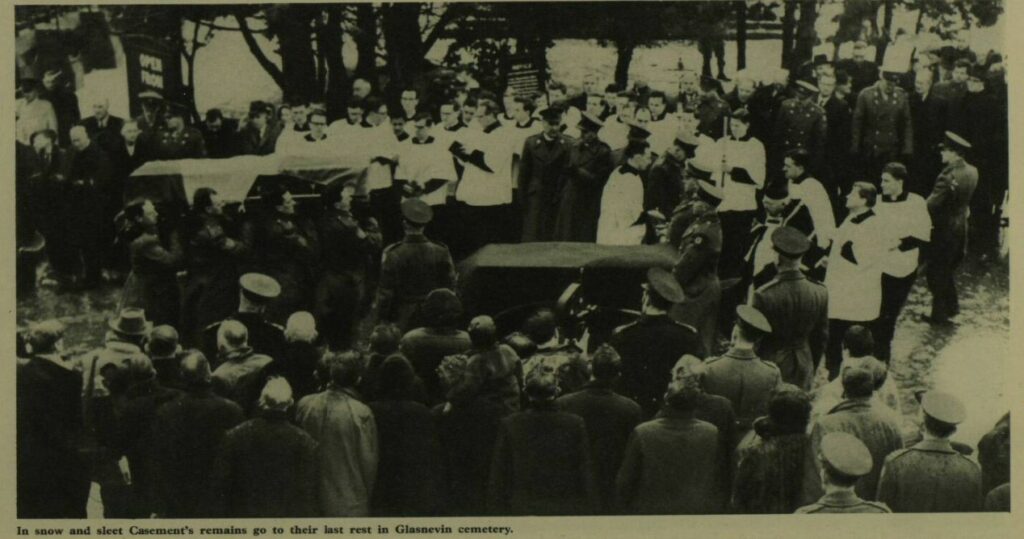
Find out more about Sir Roger Casement, the Easter Riding, and much more besides, in the pages of our newspapers today.
New Titles
| Title | Years Added |
| Dublin Leader | 1901-1963 |
| Kerry News | 1894-1920 |
| Limerick Echo | 1899-1902, 1904-1916, 1918-1922, 1930 |
Updated Titles
This week we have updated five of our existing titles.
You can learn more about each of the titles we add to every week by clicking on their names. On each paper’s title page, you can read a FREE sample issue, learn more about our current holdings, and our plans for digitisation.
| Title | Years Added |
| Belfast Commercial Chronicle | 1823-1824 |
| Dublin Shipping and Mercantile Gazette | 1872 |
| Limerick Chronicle | 1826-1829 |
| Roscommon Herald | 1871 |
| Wicklow News-Letter and County Advertiser | 1886 |
You can keep up to date with all the latest additions by visiting the recently added page. You can even look ahead to see what we’re going to add tomorrow.


